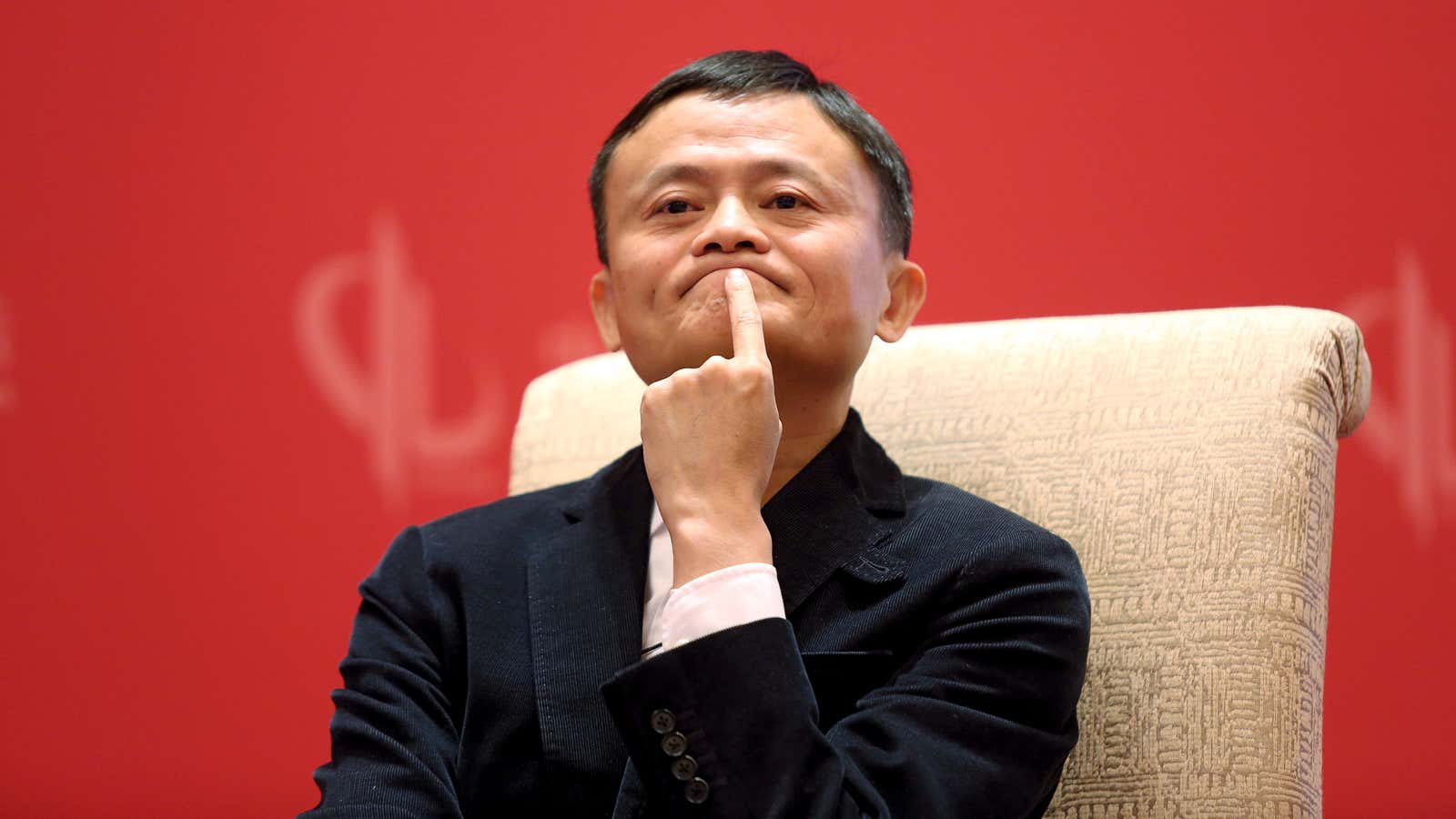At Alibaba’s first-ever investor day since going public in 2014, Jack Ma, the Chinese e-commerce giant’s founder and CEO, addressed his company’s counterfeit problem—or sort of did. He shifted blame away from Alibaba as the platform for selling those goods by arguing the real issue is that fakes are now as good or better than the genuine article, Bloomberg reports.
“The problem is that the fake products today, they make better quality, better prices than the real products, the real names,” he said at the event in Hangzhou, China. Ma said the “exact factories” producing for foreign brands, using the “exact raw materials,” now replicate luxury goods to the same standards, just leaving the brand name off. “It’s not the fake products that destroy them, it’s the new business models,” he said.
Alibaba’s consumer-to-consumer platform, Taobao, is notorious for fakes. It’s a subject that consistently provokes anger from international labels, which say Alibaba doesn’t do enough to protect their brands and intellectual property. Recently, when a prominent anti-counterfeiting group allowed Alibaba in as a member, some luxury labels quit in protest.
Not everyone agrees with Ma’s diagnosis of the problem. Cao Lei, director of the China E-Commerce Research Center, told Bloomberg that it was “inappropriate” for Ma to blame the high quality of counterfeit goods, and that while it might be true in some cases, it was wrong to “generalize the phenomenon.”
It is true that China is no longer known only for cheap, fast production. It has developed as a sophisticated fashion-manufacturing hub, producing even for high-end labels such as Prada, Burberry, and Armani. The Chinese factories churning out this coveted merchandise now have all the knowledge needed to create their own products, and Ma says many now use the internet, including Alibaba’s sales platforms, to sell directly to consumers.
Biyao.com, for example, which launched last year, says it allows customers to order directly from the factories manufacturing for a number of well-known international brands, including Burberry, Prada, Cartier, Nike, and Under Armour. The factories use their own designs, according to founder Bi Sheng. But the selling point is that the products are as good as their name-brand equivalents, while costing significantly less.
Be that as it may, it’s not hard to see why luxury labels are furious with Alibaba: There’s plenty of evidence that Alibaba’s knockoff problem continues unabated. Last month, Haze Fan, a Beijing-based producer with CNBC, described buying a pair of Dior sunglasses from a Taobao seller that provided close-up images of the product and even offered a “guarantee card.” When the sunglasses arrived, Fan could tell the product was suspicious, as was the card, which was riddled with spelling mistakes. Fan contacted Alibaba, which confirmed the product was fake, refunded her money, and vowed to investigate the vendor. “Almost two months later, however, the same vendor remains in business on Taobao,” she wrote.
In his speech, Ma called Alibaba the “world’s leading fighter of counterfeiting,” and he has said it’s in the company’s interest to police itself, since the sale of one fake on the site could lead to the loss of five customers.
Whether or not that’s true, Alibaba has to address the problem if it wants to maintain credibility with China’s increasingly sophisticated consumers and reach its goal of $1 trillion in revenue by 2020. Meanwhile, luxury brands arguably can’t solve their knockoff problem unless they work with Alibaba, but they’re not likely to do that if Ma doesn’t acknowledge the problem in the first place.
